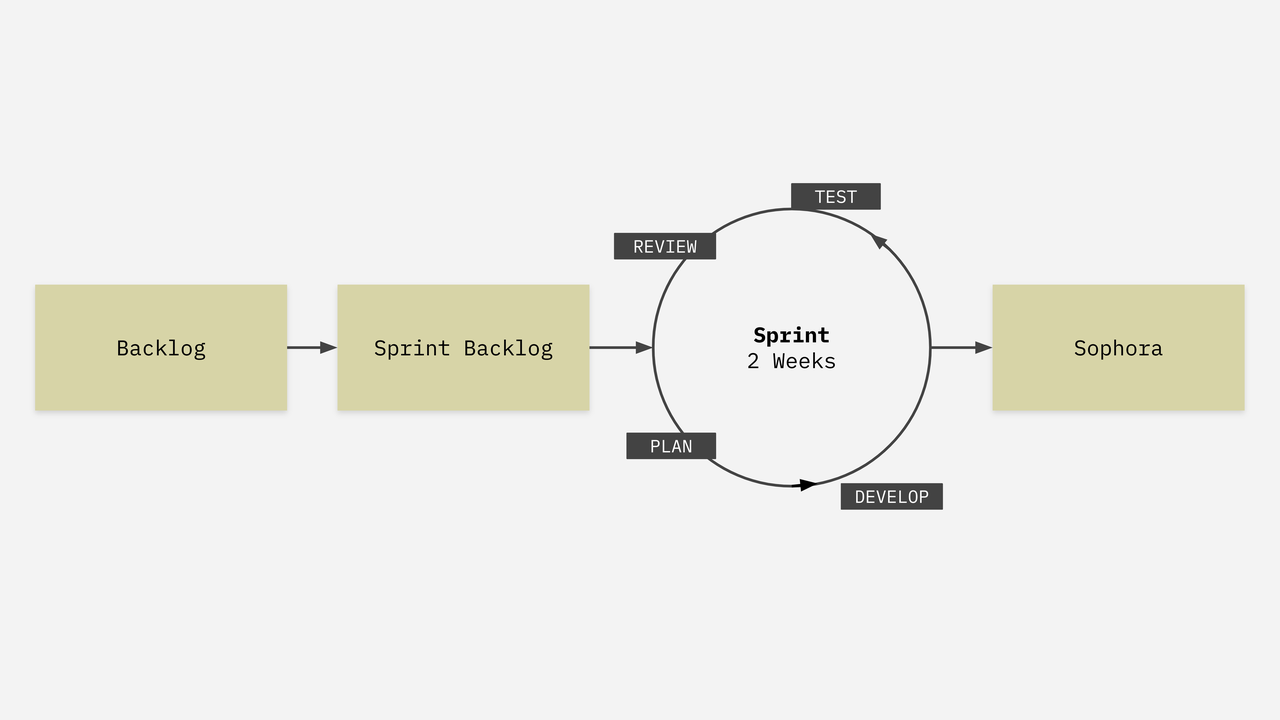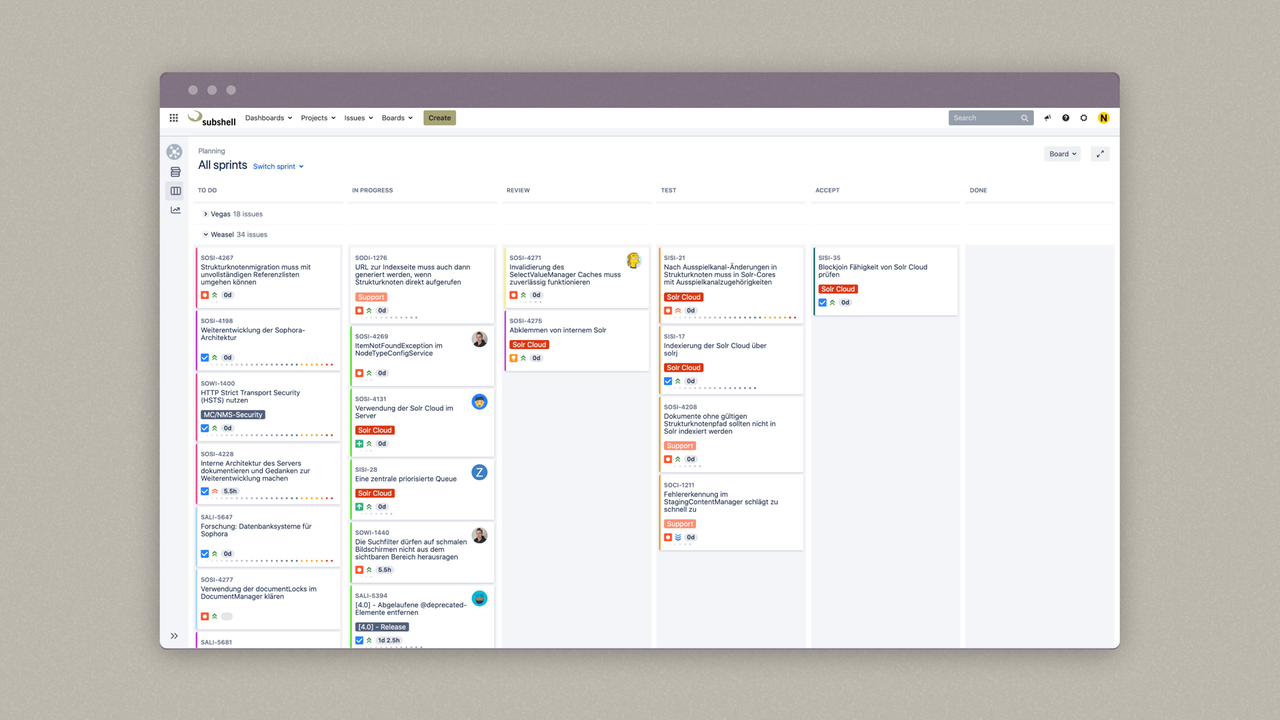
Overview of Our Everyday Life with Scrum

Overview of Our Everyday Life with Scrum
Learn how we organize our software development at subshell using the agile methodology “Scrum”.

We rely on Scrum! Scrum is a method of agile software development. By using Scrum, we plan our work in short two weeks development cycles and define work steps which are fixed for this period of time.
Scrum calls the recurring cycles “Sprints”. Planning a Sprint at subshell is the task of a person called “Product Owner”. By having the responsibility for our product Sophora, our Product Owner determines new requests, sorts them according to priority and allocates them to one of four Development Teams at subshell.
Based on self-organizing Development Teams, we do no longer need traditional project management. Teams get support by our "ScrumMasters" who are assigned to one team.
Some of ScrumMaster’s manifold tasks are teaching Scrum principles, eliminating problems that disrupting the agile process or supporting subshell’s Product Owners.
All requests that are not planned in the current Sprint are listed in the "Product Backlog". It captures all upcoming tasks.
subshell has established Scrum for over ten years already. With Scrum we have found a method to structure our product development processes in the best possible way. Also, it supports us in organizing our work flexible.
By having short development cycles, we are able to get a fast feedback from our customers. Additional advantages of short cycles are to identify problems and bugs earlier than before and the fact to present a potentially shippable product increment (sum of all Product Backlog items completed during a Sprint) after each Sprint. Thus, we are open for changes and new ideas at any time, whether internal or on customer’s request.
With Scrum we create innovations and optimize quality and productivity of our daily work. The transparent and agile development process causes a higher employee and customer satisfaction.
| subshell: Scrum Details | Numbers |
|---|---|
| Teams | 9 |
| Sprints | 377 |
| Tickets in JIRA | 72243 |
By following the approach of Scrum we are able to improve our development continuously. The benefits of Scrum at a glance:
Scrum supports internal and external communication.
Regular feedback, for instance at meetings or reviews, enables a transparent software development.
Short development cycles optimize organization and agreements on deadlines.
Increased willingness as well as the possibility to react flexible to new requirements.
Every two weeks a shippable product increment is created.
Frequent feedback by customers through acceptance of already completed requirements.
Continuous product improvements.
Sprint planning reduces error rates of large-scale projects.
Self-organizing development teams optimize their time scheduling.
JIRA is a Atlassian software in order to create and manage digital tasks. The platform is used for project- and issue-tracking. It supports our internal and external communication while working on product requirements. Also, we use JIRA for technical support requests.
Both, customers and employees create new tasks with JIRA and document the work they have already done. The software is also used as a monitoring tool and offers reporting options such as burndown charts. With JIRA we make our development process transparent.
